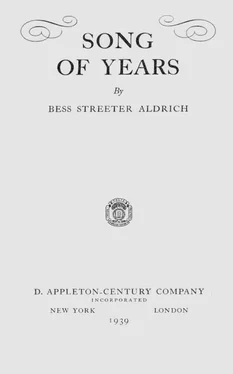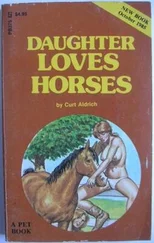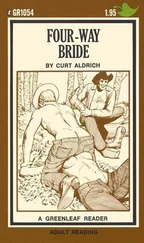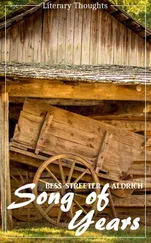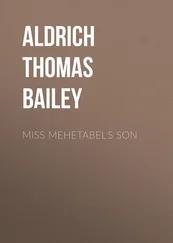All afternoon to the west he walked as though he, too, like the prairie blossoms, the moon, and the stars, must follow some vagrant urge.
Sometimes he sang again, not too loudly to consume precious breath, but low disconnected snatches of melody.
Sometimes he thought of his long trip from the east: the ride on the steam-cars to Chicago, a big place of nearly thirty-five thousand now; the change to the train which took him to Warren, Illinois, the end of the railroad; then the stage ride to Dubuque where he ferried across the Mississippi. He recalled the site of that town of three thousand perched there on the river’s bluff, and the interview with the government officials.
Once or twice he reached in his pocket to make sure that the paper they had given him was still there—the list of unpatented and unsold lands out here in the far-off Valley of the Red Cedar. And for the hundredth time he touched the ridge at his waist-line which was the quilted belt containing money for a portion of that land.
Sometimes his thought dwelt on the folks at home, his father, mother, brother, and sister he had left behind two weeks before in the New England town. Queer they had made so much howdydo about his leaving, mother and sister crying over him, even his father, formerly sympathetic with the plan, growing regretful at the last that he had consented to the venture out beyond the Mississippi. It had seemed the end of the world to them all—almost so to himself. And yet here he was at the end of the world.
For himself he held no regrets. For the first time in his life he felt entirely free, completely his own boss. For the first time he would own property—rich land out here in this new raw state. A great many people thought it would never be settled. It was true there were no railroads, no big towns, only a few settlements clinging to rivers.
“Even if you do raise something,” his mother had said in her argument against his coming, “how can you ever expect to sell it? Who is there to sell it to? You can’t ship it. . . .”
Once his mind dwelt on another memory—a girl. She had come down the village street; meeting him, stopping to speak about his leaving, she had suddenly broken down, grown tearful and foolish. He was ashamed for her. Nice girls didn’t throw themselves at you like that. He had no hankering for a sweetheart, would have none for many years. When he did . . . if he ever did . . . His mind formed a very indistinct picture of some beautiful unknown creature in a nebulous mist of white, a sort of blurred outline of a wingless angel floating in clouds. Anyway, if the time ever came he would know her when he saw her—of that part only was he certain!
Then quickly he tossed this sketchy and imaginative picture aside as lightly as crumpled paper. No time to think about girls out here. He desired nothing so much as land and crops and stock, freedom to come and go as he wished, to get rich and perhaps parade his success a bit back home.
The trail still stretched ahead over the prairie, the bent and broken stems of wiry grasses, crushed flowers and indistinct wagon ruts pointing the way to the two little settlements there so close together in the Valley of the Red Cedar.
Ever since he had come from the log tavern back there at a point called Independence, the trail had presented no cabin or sign of humans. Only the knowledge that two settlements, Prairie Rapids and Sturgis Falls, lay at the end of the wagon ruts, six miles apart, gave him the assurance that the journey would end in anything but that great green sea. On the crude map in his pocket were penciled the two settlements, and the locations and numbers of the few patented sections surrounding them. All besides these were government owned and from these he was to choose that which would be his. It must be near one of the settlements, it must have water and timber.
He broke into singing again, low, deep-throated, a song with no meaning but its sheer exuberance of feeling.
And now there were black dots in the distance at the left, a half dozen spotted about on the open prairie and another straggling group on the opposite bank of the river that came down from the northwest. The Red Cedar! Sparkling in the afternoon sunlight, with blue joint grass to the water’s edge, and timber in the distance. Prairie Rapids! The larger settlement, Sturgis Falls, would be six miles beyond.
He stopped now to reconnoiter and plan. To-night he would stay in the log house over there in Prairie Rapids which he had been told passed for a tavern, or at one of the three in Sturgis Falls beyond. Just now he would walk on the six miles to the other settlement, keeping his eyes open and appraising the lands that lay at his right between the two.
As he walked he saw that the timber along the river’s bank to his left became heavier but open prairie still lay to the north.
He had gone perhaps three miles when he came to another stream, a mere rippling creek with no great depth. But something in the clear little stream, a song of its own in the ripples, the whiteness of its sandy banks, the clean gravel along its waters, gave him pause and after he had slaked his thirst, guzzling like any other prairie animal, nose and mouth in the cool water, he sat down on the bank to ponder a bit.
From his pocket he drew the penciled plan given him in Dubuque by the government official. Here it was. This land, this part of the trail where he now sat, was taken. In fact a few log cabins along the trail were visible from this point. Farther to the northwest a section away, the plan showed unpatented acres: a scribbled notation across the sections said, “rich land, water, timber, sand, gravel.”
Abruptly he turned off the trail and followed the creek bed to the northwest. Hickory and hazelnut scrub lined the banks so that he must keep close to the creek bed for the trail, or stay outside of the green border. Squirrels scolded about this intrusion. Wild ducks flew up from the water with a whir of beating wings. A startled heron took to the sky like a graceful blue-gray boat sailing into limpid gray-blue waters.
This, too, was preëmpted land; only that which lay still farther was unentered. He swung along the creek bed for a few rods, estimated with practised eye that he had come a mile from the trail, consulted the paper again.
This now . . . about here . . . ended the preëmpted claims. That which extended beyond was all government land. The lush grass bent before the wind. A spring bubbled from the sand of the creek bed. The thin wooded border of the winding creek merged into a small grove of maples, elm, oak, and ash.
The young man drew a quick excited breath. Wood . . . creek . . . gravel . . . sand . . . flowing spring . . . rich loam . . . only a mile to the north of the beaten track, about five from Prairie Rapids . . . only about three, probably, from Sturgis Falls. This was it. For this he had come the long miles by steam-cars, stage, and foot.
“God!” he said aloud. Some of it was mere careless ejaculation. But some of it was genuine thanks to the addressee.
All this had been surveyed. Two years before a group of surveyors had completed their work in this part of the new state, so the official there in Dubuque had told him. Somewhere there in the grass, then, covered by an inverted piece of prairie sod lay the corner stake of the section. His farm!
Long he stood gazing on the picture of the green grass and blue sky, running creek water and white sandy bank, and the trees beyond. It was possible that no man but the surveyors had stood in this spot before, for it was north of the beaten trail. No one had done so at least with proprietary eye, for the surveyors had but done their work and gone on.
“This is it.” He spoke aloud as though the saying so before these grasses gave the choice definiteness and solemnity. “Yes, this is it.”
Читать дальше
